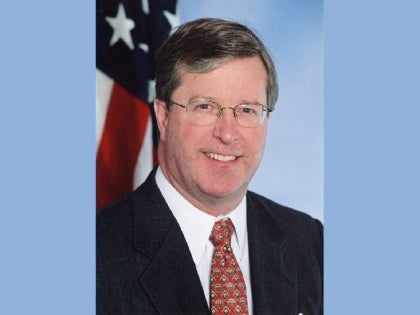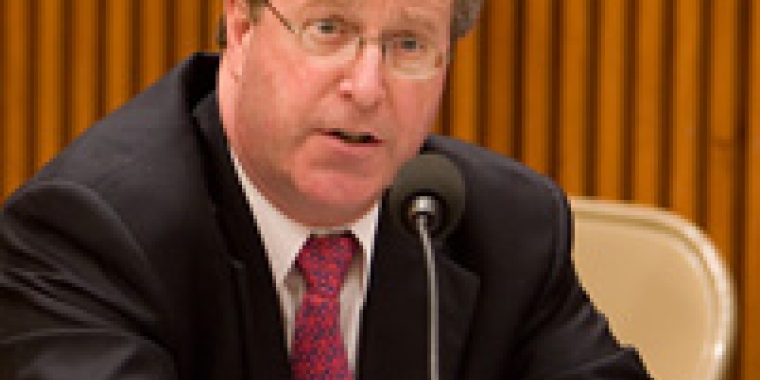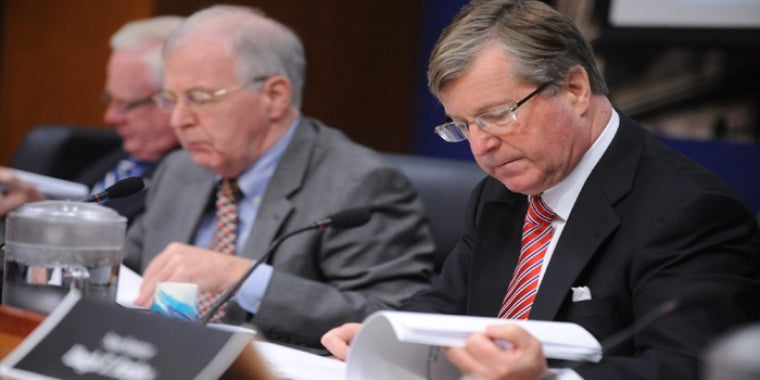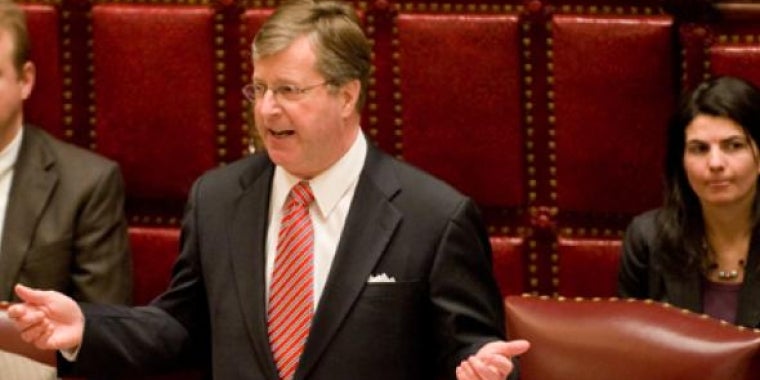
Legislature Completes On-time Budget; Winner Calls For Permanent Budget Reform

Albany, N.Y. -- As the State Legislaturefinished its work today on the first on-time state budget since 1984, State Senator George H. Winner, Jr. (R-C, Elmira), who was one of 10 state legislators appointed to the Legislature’s Joint Conference Committee on Budget Reform in 2004, said that the Legislature’s next order of business should be to move ahead with a budget reform agreement reached bylastyear'sconference committeeto guarantee that a state budget is in place on time, every year.
"This year’s on-time budget will be a credit to every citizen who expressed outrage at the Legislature’s inability to get a budget done by the deadline. The public’s anger fueled this year’s urgency," said Winner. "Now we need to move forward on permanent, guaranteed budget reform in New York State."
Winner said that the Legislature needs to get back to work on a budget reform agreement first reached in 2004. He predicted that it would remain a prominent topic of discussion throughout the remaining months of the legislative session.
"We’re doing the job this year, but we still need to set an on-time tradition in stone for future years," Winner said.
Last May, both houses of the Legislature gave first approval to an amendment to the State Constitution that would implement a series of budget reforms including the automatic enactment of what’s commonly known as a "contingency budget" if legislators fail to meet the annual budget adoption deadline. The contingency budget would continue the previous year’s budget into the new fiscal year. Amending the state constitution in this way requires legislative approval again in 2005, followed by statewide voter approval this November.
Winner said that the Legislature should give second approval to the constitutional amendment right away. He highlighted the contingency budget provision as a priority throughout last year’s joint conference committee process, which took place over the course of several weeks in March.
"The contingency budget is the key. This is the provision that imposes a hard-and-fast consequence for being late and guarantees that every future state budget will be adopted on time. The contingency budget should remain an overriding goal for this Legislature," said Winner.
Additional highlights of last year’s agreed-upon budget reform legislation included:
> changing the start of state fiscal year from April 1 to May 1;
> requiring an earlier submission, by January 15th (February 1st for a newly elected governor), of the governor’s annual budget proposal and shortening the amendment period from 30 days to 21 days to allow additional time for legislative review;
> requiring all state agency budget submissions to be made public prior to submission of the governor’s proposed budget;
> requiring a three-year projection by the governor of the financial impact of any budget changes;
> requiring the creation of two reserve funds, one equalling three percent of the state’s general fund and another three percent of state funds, to provide funds for school aid payments, and to cushion against unexpected economic downturns, revenue shortfalls and natural disasters;
> requiring discussions between the governor and the Legislature on forecasts of tax revenues, Medicaid disbursements, school aid disbursements and public assistance caseloads to begin on or before December 5th of each year;
> requiring the governor to include a two-year appropriation for aid to education in the executive budget proposal; and
> creating an Independent Budget Office (IBO) to provide the Legislature with detailed information related to the budgetary process including annual economic and revenue forecasts, a three- year fiscal outlook, quarterly reports on state revenues, and fiscal impact statements on proposed legislation. All reports of the IBO would be made available to the public.



